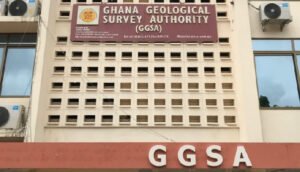
Dr Bawumia
At a consultative forum on ‘galamsey’ and deforestation, Vice-President Mahamudu Bawumia had cause to draw our attention to the fact that lives and livelihoods are at risk.
The dire nature of the situation is better appreciated when we look at the fact that the streams and rivers that adorned our communities, from Accra through Kumasi to the northern part of the country, are now extinct and buried under rubble or structures along our residential communities.
The pillage is aside of the vanished woodlots that helped protect the ecology and beaches that harboured stretches of coconut trees along the Atlantic Ocean in the Greater Accra, Central, Volta and Western regions.
Away from Accra into the Central, Eastern, Western and Ashanti regions, we had a huge expanse of forest reserves that have now been drastically reduced in terms of size and greenery.
Even the northern sector, which lies within a fragile ecological setting but currently positioning itself as a hub of regional trade, has its own peculiar challenges as far as natural resource exploitation is concerned.
It is particularly challenged with forest degradation as a result of over exploitation of trees, especially rosewood, for export, excessive reliance on fuel-wood and charcoal production.
Protection
As some would have witnessed, such natural resources, particularly the streams and forests, provided our communities not only with physical blessings like game and fish and other aquatic life, but also fruits and vegetables with abundant health, medicinal and economic values.
In the light of the ongoing threat, which is now tragically manifested in the galamsey menace, the dire situation evidently calls for vigilance on our part in protecting the modest resources left.
But that also puts a collective responsibility on us as citizens and as civilised beings to be ingenious in striving to restore what we, through collective inertia, have brought upon ourselves.
Vice-President’s call
That is why we agree with the Vice-President when he calls for enhanced national dialogue on the sustainable exploitation of Ghana’s minerals, forest and wildlife resources to ensure that the lives of the living and generations yet unborn are not adversely affected by unregulated exploitation.
The way forward, as the Vice-President pointed out, is increased collaboration and engagements with stakeholders, especially those directly affected by such activities, to address the looming danger.
Youth associations, decades ago, were responsible for protecting the resources of the community as well as its gates against criminals.
That tradition, in the opinion of the Daily Statesman, must be rediscovered in containing the situation as government makes an effort to reclaim our dying water bodies and reforesting our ecology.
Partnerships
A recovery plan only succeeds if we collectively, under the leadership of our traditional rulers, engage and sustain our efforts.
As we would admit, many livelihoods depend on mining and the exploitation of forest resources.
However, as the Vice-President noted, “the exploitation of these resources have not been without certain negative impacts on the natural environment because of the unsustainable practices that we employ, leading to pollution of water bodies, chemical pollution.”
In our collective quest to exploit our diverse minerals, forest and wildlife resources for the benefit of future generations, we must, therefore, resist the temptation to be selfish and partisan.
This is because everywhere in Ghana, there are beautiful rivers and streams as well as forests and mountains that transcend constituencies and regions and, therefore, political party colours.







